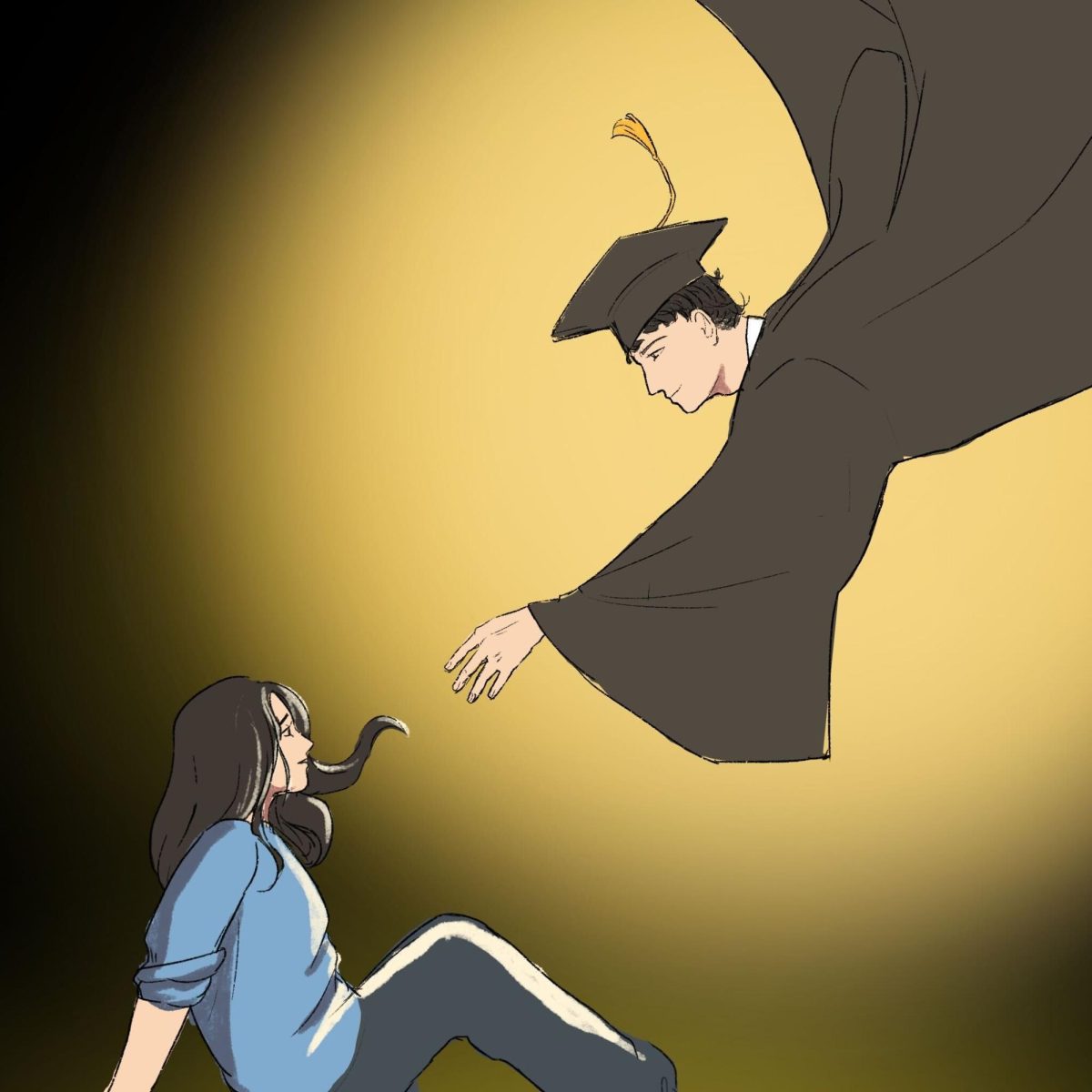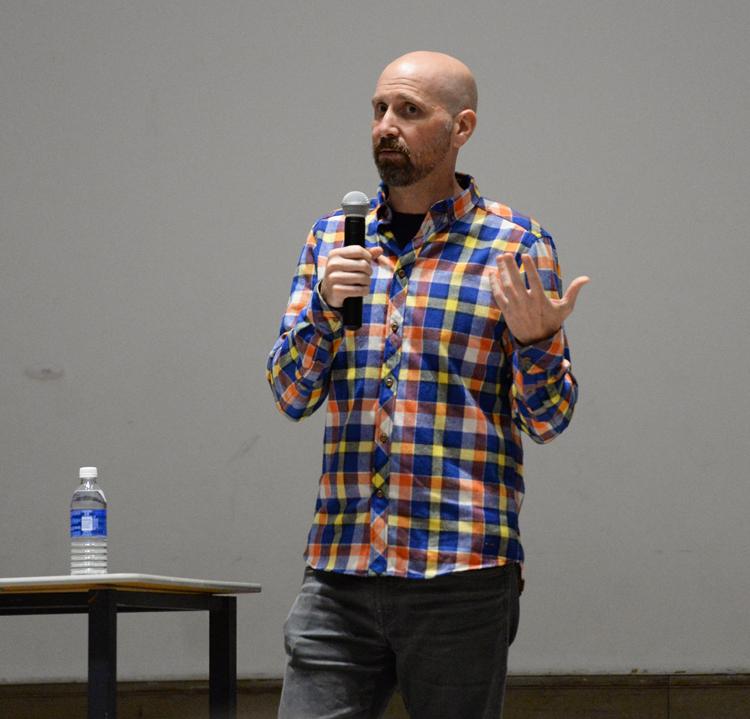In 2010, David Thorpe was anxious about his “gay voice,” so he began seeing a vocal coach to make his voice sound more masculine.
By 2014, he realized his voice was fine the way it was — Thorpe had just finished filming a documentary about the process. Now, because of his own struggle, he works to bust the stereotype of the gay voice.
Thorpe, a journalist and director of the 2014 documentary “Do I Sound Gay?” led a Q&A for Pitt students after the showing of his movie in the Frick Fine Arts Building 8 p.m. Wednesday, Oct. 28. Along with Pitt professor Scott Kiesling, who mediated the event, the Gender, Sexuality and Women’s Studies department hosted the showing, which about 200 students attended. Starting Nov. 3, the documentary will be available on Netflix.
The movie, which premiered in Toronto in the fall of 2014, features celebrities such as comedian Margaret Cho, fashion icon Tim Gunn and comedic writer David Sedaris and explores the stereotype of gay men having a lisp, exaggerating enunciations, holding vowels too long and speaking in a singsong voice.
Thorpe said the bottom line is that this stereotype is simply untrue and problematic.
“There is no such thing as a gay voice,” Thorpe said. “There are voices that sound more or less stereotypically gay, which is to say more or less effeminate, so I do want to break down the notion that there is an inherently gay voice.”
Thorpe said he wants his documentary to be a conversation starter about anti-gay sentiment for people within and outside of the LBGTQ+ community.
“The stereotype of the gay voice isn’t the same thing as homophobia, but the stereotype of the gay voice has been used for homophobic purposes,” Thorpe said. “The film makes it clear that misogyny and homophobia are closely related in that the gay voice is a tool to belittle gay people because they have a resemblance to women.”
Marcus Robinson, president of Pitt’s Rainbow Alliance, said the gay voice trope can lead to harassment.
“The notion of a gay voice, whether real or not, has negatively impacted many people’s lives,” Robinson said, “whether that be people who identify as straight being bullied for appearing to have a gay voice or people who are gay with a gay voice being bullied.”
As a sociolinguist, Kiesling studies how social identity affects language. He has also found that the gay voice is a social construction. It is not something inherent to a gay man’s speech patterns or something that all gay men use, he said.
“Speaking with a gay voice is not a direct effect of being gay,” Kiesling said. “It’s because gay voice is a particular identity that has been created in a culture to signal something through language.”
Sociolinguists such as Kiesling have found that people will change their speech patterns, whether consciously or unconsciously, to portray their identities. The film presents the idea of code-switching, suggesting that people switch their way of speaking in different situations.
Often code-switching is unintentional, but it can also be done purposefully, according to Kiesling.
“We have found that people change the way they speak because of how they want to be perceived,” Kiesling said. “For example, in studies we have found that people will use different aspects of the gay voice in different situations. It kind of shows how we choose certain aspects of identity as important and then those come out through language.”
Thorpe said he hid the effeminate qualities of his voice growing up to avoid bullying, but changed his speaking patterns in college when he came out.
“When I came out, how I talked started to change,” Thorpe said. “That included kind of an unconscious shift in how I spoke as I was trying to find my gay identity.”
Though initially Thorpe worked to change his voice to something more “normal,” in the end he decided it was more about what he was saying than how he sounded.
One person at the screening, Kaysie Strickland, a Pittsburgh local, watched the documentary from the point of view of a documentary student and the point of view of a gay person.
“I’m always interested in documentaries but to have an elephant in the room addressed, something like this that we all know is there, was great,” Strickland said. “To have the director go so far into it, making it his own personal experience and then to bring it big picture — it was just a really well-rounded documentary.”
In explaining how there is a grain of truth to the gay voice stereotypes, as there is with many stereotypes, Thorpe said it doesn’t matter — it should not be an excuse for harassment.
“There’s some truth in a stereotype, but you never want to reduce people to a stereotype or to a dimension,” Thorpe said. “People get along best when they treat each other like human beings.”



